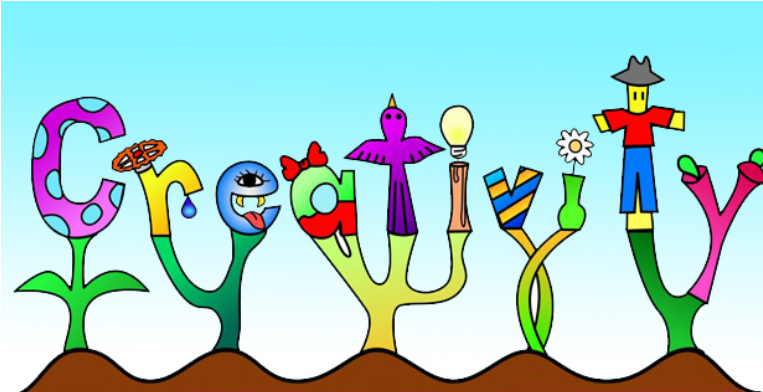Expression is an integral aspect of human lives. It becomes more personal and emotionally intimate when it is your very own experience which you are trying to express. Your thoughts, your ideas, your emotions, your feelings, everything is built upon these little experiences you come across on a day to day basis. Isn’t it beautiful that we have so many stories to tell? Each day is a story, each moment is an emotion. In rare scenarios we notice and acknowledge it consciously while being present in the moment and for a major part of the day we end up absorbing it all subconsciously. But we always feel some or the other kind of an emotion. Articulating these emotions into words and putting them down on a paper is a beautiful activity. We call it journaling.
Just sit down with a diary / notebook / laptop or anything that you are comfortable with and pen down your thoughts every single day. What all you came across on that very day, what were your experiences, any new thing that you noticed, learnt or explored at the school, any moment that stayed with you, any kind of a gesture (either your own or of someone around you that you found special) or any kind of a feeling in general (positive or negative) that’s playing in your head, just put it all down on the paper. Journaling lets you be free, it lets you explore and introspect yourself and most importantly it lets you express yourself.
Journaling simply means the practice of keeping a journal or diary, especially in order to express one’s thoughts. Ideally it should be done in a very quiet, peaceful environment while disconnecting yourself and your mind from the regular hustle bustle.
Let’s go through the merits of journaling one by one :
1. A medium of expression
As repeatedly mentioned above, journaling lets you express yourself. And it is extremely important for kids to develop this habit from childhood itself. Being able to communicate better will just make them more comfortable with their inner selves and their surroundings. Journaling regularly will most likely inculcate this habit within them.
2. Boost in confidence
Regular writing will make kids more confident and more prepared to go out in the world and put their thoughts out in the open. They will get acquainted with the right set of personality skills needed to be able to communicate better and with the right kind of clarity over the course of time.
3. Writing skills
Kids’ writing skills will get honed with regular and consistent journaling. Dabbling with words, ideas and thoughts, articulating and framing the right set of sentences to put across their point in the most authentic possible manner and expanding their vocabulary pool slowly and steadily is only going to help them get better at writing.
4. Channelising and confronting different set of emotions
Anger, laughter, happiness, sadness, melancholy and many such different kinds of emotions can be channelised within and expressed in a very pure manner. Imagine you not breaking a household object in anger but putting that anger out on paper and expressing your feeling through words, isn’t it a far better alternative? And the same could be the case with other emotions as well. Your journal over time would become a home to all your emotions which you have felt at some point of time and you have built this home with utmost care and affection.
5. Therapy
Journaling is often recommended in counselling and therapy treatments for patients to reflect upon their thoughts. In this context, kids might or might not be dealing with stress. But irrespective of that, journaling will always be a therapeutic experience for children. They will be at peace, will become mentally more stronger and will be able to keep a record of their thoughts and emotions while following upon them on a regular basis.
6. Mental exercise
The more you think, the more you introspect, the more you ideate, it will all help the analytical side of yours strengthen over time. The mind will always be in a stimulated state, the ideas will flow and newer, creative thoughts will be in place. It’s in a way a mental exercise, something that will immensely help a child’s brain and his / her analytical side to be in constant motion.
7. Archiving and documenting your emotional journey
With persistent journaling, you are also archiving your inner thoughts over a course of time. It’s like documenting a journey. You can look back and revisit it from time to time to understand where you were at one point and where you are today. The way a large set of photographs clicked since our childhood make us smile as we watch and feel ourselves grow physically from one moment to the other, similarly journaling over a course of time will let you have the archives which will in turn let you witness your internal and mental growth from point A to B, B to C, so on and so forth.
8. Life learnings
As you continue journaling, you will come across a lot of learnings which will be immensely vital for your self growth. It might feel as if we know ourselves really well. We know what we have experienced, what mistakes we have committed in the past, what set of efforts we have put in to correct them and become a better version of ourselves over time. Staying sane has become difficult in the present day and age. This might not be that major a concern for kids at such a young age, but there’s a possibility it might become one in the years to come. So why not prepare themselves to face life years in advance?
The list of pros could go on and on. It’s important to understand that this sweet, little, harmless activity is just going to benefit kids in some capacity or the other. It’s going to help them rise onwards and upwards on an academic as well as on a personal front.
And it is important to stay open and flexible and expand your areas of journaling as and when you feel like. You can even have prompts if you are comfortable with it and let your writing take shape accordingly on specific days. You can even incorporate drawings, sketches, paintings, illustrations or any other artforms in your writings that you love and associate yourself with.
The final goal should always be to be able to introspect, reflect, communicate and express yourself in the purest possible form. That feeling is beautiful when you successfully put out something caged within yourself. It sets you free. It makes you feel better. It helps you know yourself better. It helps you learn and grow steadily. It helps you become a better version of yourself. It makes you appreciate yourself and the world around you.
Calm your mind, sit back and express.

)
)
)
)
)
)
)
)
)
)